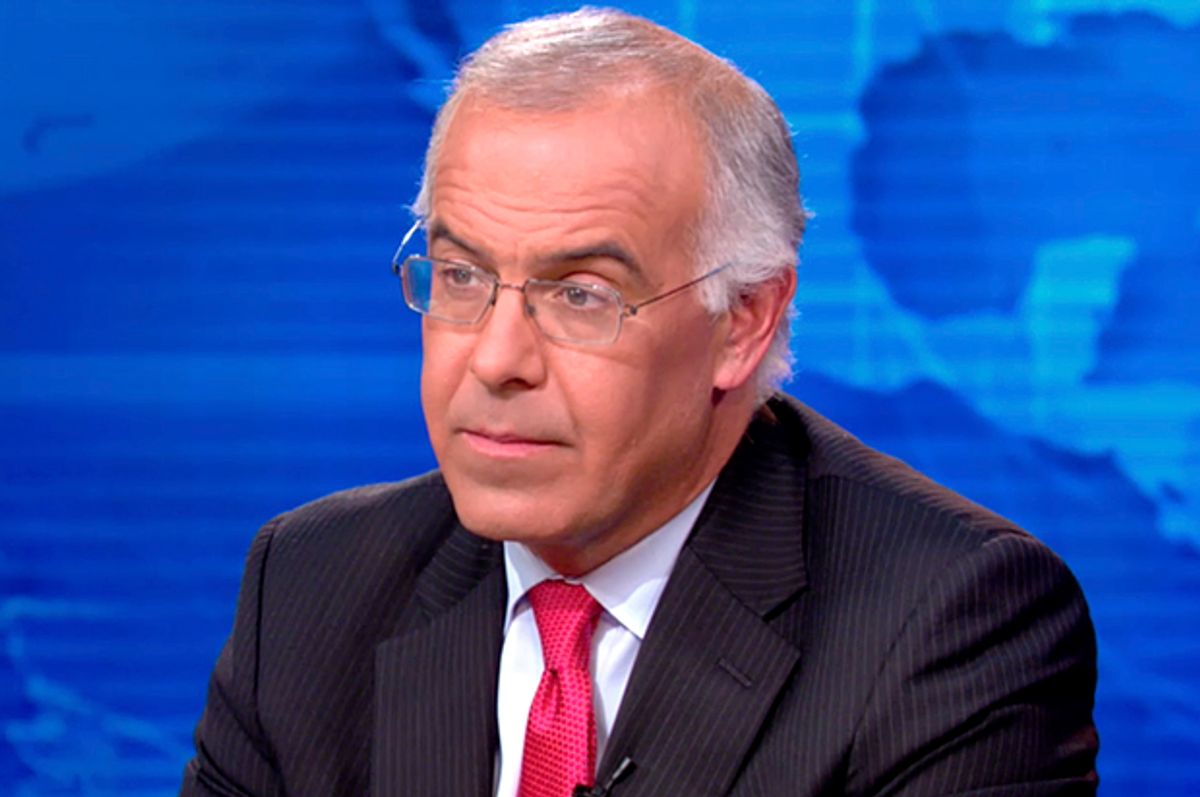In his Tuesday New York Times column, David Brooks complained about the oversimplification of social narratives thanks to the "one true story" theory of human interaction, but instead of complicating said theory, he simply offered other "one true stories."
Building off Chimamanda Ngozi Adichie's TED talk, "The Danger of a Single Story," Brooks argued that children on college campuses have overtaken all modes of debate with their "identity markers" and "campus political correctness," and that "[i]f you differ from the official story -- it is not so much a sign that you are wrong" as one that you have "false allegiances."
"You must embrace the approved story to show you are not complicit in a system of oppression," Brooks wrote, as if he's never been on a college campus before and this is a new phenomena. He chose, as a means of explicating this "trend," the discussion of raising the minimum wage:
One true minimum wage story is that corporations are reaping record profits while pushing down wages of the unskilled. But another true story, embodied in the vast trove of research, is that if you raise the minimum wage too high, you end up punishing less skilled workers. One study found the modest hike in the national minimum wage between 2006 and 2009 reduced employment among young people without a high school degree by almost 6 percent.
The key is to find a balance between those stories. Raising the minimum wage to $15 may make sense in rich areas, but...



Shares